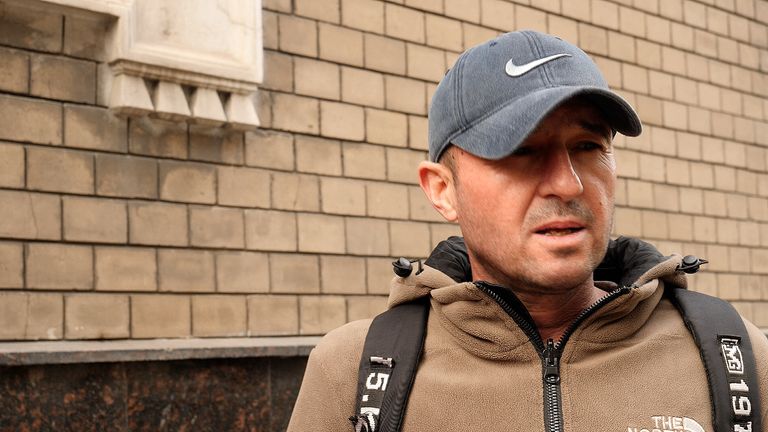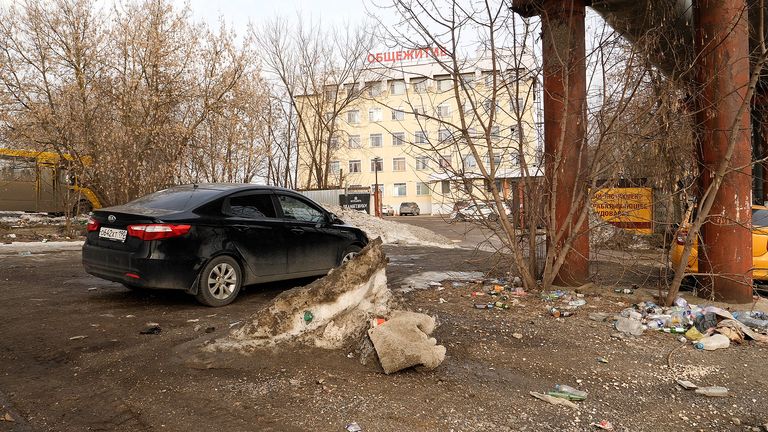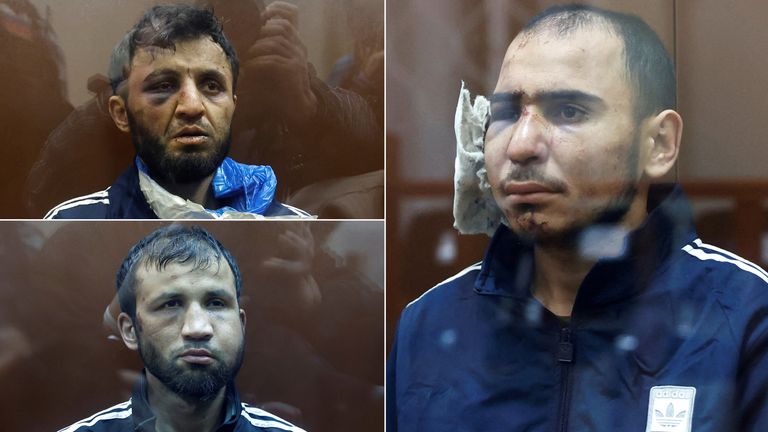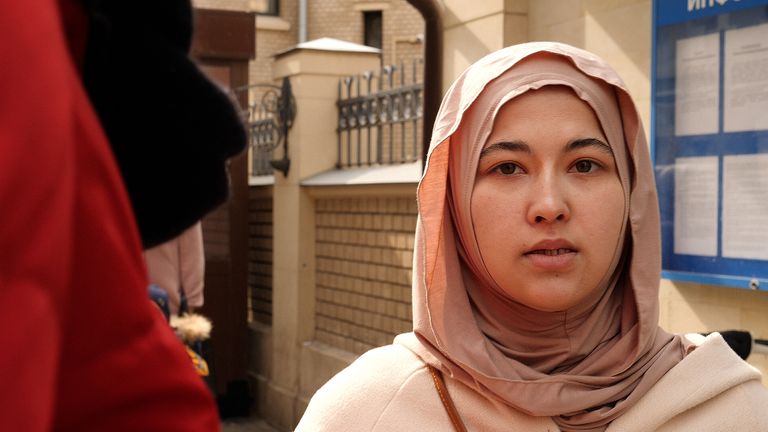“They are not our nation, these are not our people. If I was the state of Russia, I would kill them with an axe.”
That’s what Firdavs, a migrant worker from Tajikistan who we met outside the Tajik consulate in Moscow, had to say about the four suspects behind the Moscow terror attack, all of them Tajik citizens.
Others joined in, offering their condolences to the people of Russia, saying they are mourning too.
Russia is not an easy place for central Asian migrant workers at the best of times.
They keep the streets clean and deliveries cheap, warehouses stacked and construction projects afloat.
There is little money and no security but it is better than the salaries back home.
The war has added to that sense of precariousness with raids on dormitories, frequent deportations of unregistered migrants and fears over possible conscription.
Now the horror of what happened at Crocus City Hall casts a further shadow.
“Here we are in Russia,” Firdavs said. “We want to work and live normally.
“The state also supports us, all of this suits us.”
For just under £2 a night, you can get a bunk in a dorm of six to eight people at a hostel in the village of Chelobityevo, on the outskirts of Moscow.
But not if you’re from central Asia.
“The FSB won’t let us register them,” the caretaker declared, although just down the road another dormitory seems to have no problem with the bureaucracy.
An indicator perhaps of the disdain a lot of Russians feel towards their central Asian brethren at the bottom of the labour market.
Vladimir Putin asked prosecutors this Tuesday to make sure that law enforcement reviews anti-crime measures, particularly within the context of migration.
What happened at Crocus City Hall proves he has good reason to fear radicalisation amongst marginalised communities, especially the more impoverished among them which the Tajik community is.
Read more:
Islamic State group behind attack sought recruits in UK
Russians left reeling in the aftermath of attack
Who are IS-K and why would they target Russia?
One of the attackers said he’d been offered half a million roubles (£4,300) to carry out the attack, a statement made under duress but, if true, an indicator of the toxic mix of poverty, marginalisation and radical Islam.
Easy prey for Islamic State – Khorasan, active across Afghanistan and central Asia, which has claimed responsibility for Friday’s atrocity.
Click to subscribe to the Sky News Daily wherever you get your podcasts
Still, the Tajiks we speak to at the consulate say they haven’t noticed an increase in hostility towards them in the wake of the attack.
“When it happened I thought something might change, but it’s been fine,” said Fatima, who is studying in Moscow.
“I want to say that the rest of the Tajiks are not to blame for anything,” she said.
“We also grieve with you and it was very scary for us too.”





















